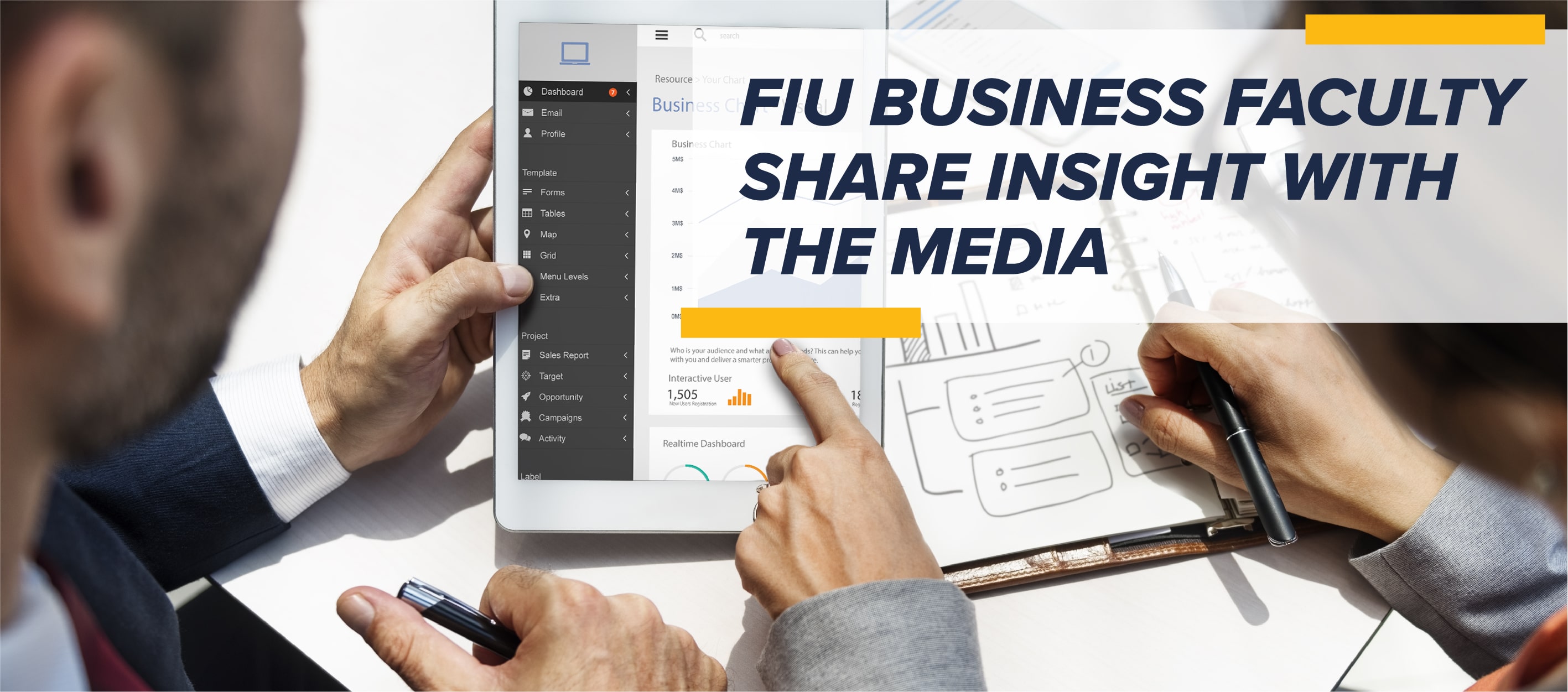
NBC6 Miami — February 7, 2022
In a story about the increasing number of Florida workers
leaving their jobs every month, Marc Weinstein, clinical
professor of global leadership and management, explained
that with the pandemic, increase in unemployment and
government aid coming to an end, if a company can't find
employees now, they're not being competitive. "People in lowwage
jobs, they want better jobs. Better jobs not just in terms
of compensation, but greater stability," he said.
People in low-wage jobs, they want better jobs. Better jobs not just in terms of compensation, but greater stability.
Marc Weinstein, Clinical Professor, Global Leadership and Management
Harvard Business Review — January 27, 2022
In an article about how giving negative feedback impacts the
person delivering it, Ravi Gajendran, associate professor of
global leadership and management, and his co-authors wrote
that the impact depended on how empathetic the leaders
were. Researchers offered strategies including encouraging
more-empathetic leaders to take breaks after giving negative
feedback and training less-empathetic leaders on techniques
for delivering feedback more compassionately. "High-empathy
leaders became less effective at core leadership tasks after
giving negative feedback," Gajendran and his co-authors wrote.
High-empathy leaders became less effective at core leadership tasks after giving negative feedback.
Ravi Gajendran, Associate Professor, Global Leadership and Management
The Hill —January 23, 2022
In an op-ed, Jerry Haar, professor of international business,
highlighted that the U.S. global competitive advantage is
not in manufacturing but in services, which account for over
80% of U.S. employment and 79% of GDP. One sector often
overlooked is higher education, he wrote, noting that foreign
students coming to study in the U.S. generated $44 billion in
2021. "Our economy is rapidly becoming more knowledgebased
and innovation-oriented, and this is where we can
compete in the global marketplace," he said.
Our economy is rapidly becoming more knowledge-based and innovationoriented, and this is where we can compete in the global marketplace.
Jerry Haar, Professor, International Business
Daily Beast — January 1, 2022
In a story looking at the U.S. political and economic landscape
of 2022, Craig Austin, assistant teaching professor of
marketing and logistics, explained that prices will keep rising
due to inflation. Consumer demand hasn't slowed, and the
supply chains cannot handle the current volumes, he said.
"We never had it at these levels," he said. "You have clogged
ports, clogged supply chains. It's going to take a while to work
yourself through that."
The Ascent — December 17, 2021
In an article about the increased spending on non-fungible
tokens (NFTs), which estimates put at $26 billion in 2021,
Hemang Subramanian, assistant professor of information
systems and business analytics, warned that many are minted
on the Ethereum network, which struggles with high gas fees.
"NFT platforms charge anywhere between 2% and 12% in artist
fees and platform fees for listing NFTs," he said.
We never had it at these levels. You have clogged ports, clogged supply chains. It's going to take a while to work yourself through that.
Craig Austin, Assistant Teaching Professor, Marketing and Logistics
CBS 4 — November 18, 2021
In a story that looked at credit card debt in Florida, Deanne
Butchey, teaching professor of finance, noted that as stimulus
money, childcare money and other government packages
ended, people will probably finance their way of life through
credit cards. "The concern is if you had savings, if you had
money from stimulus package or tax credits that was OK, but
very quickly, that money is running out. So, unfortunately,
people are going to be racking up that credit card debt,"
she said.
Entrepreneur — November 10, 2021
In the story "Why are prices so high? Blame the supply chain
– and that's the reason inflation is here to stay," logistics
professor Craig Austin wrote that the reasons prices are rising
are complex and many. He explained that there's no end to the
supply chain problems. Consumer demand was only going to
increase through the holiday season and beyond. "Consumers
should get used to the higher prices. They're the new normal,"
he wrote.
Consumers should get used to the higher prices. They're the new normal.
Craig Austin, Assistant Teaching Professor, Marketing and Logistics